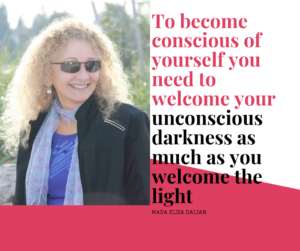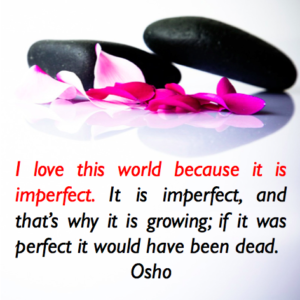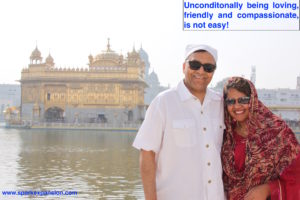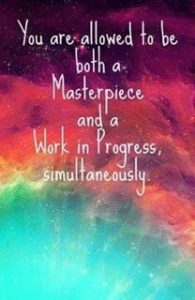We had a family outburst recently. It has inspired me to share what I have learnt about anger over the last decade, especially the sort that is unhealthy for all.
Anger is very difficult to deal with. Both as the person who is expressing it, and as the one who is having it dumped onto them. The one expressing it, can end up going into self judgment and self-loathing afterwards- and this is not good for self-esteem. The one receiving the anger dump, may end up feeling compromised or unloved/wounded by the comments and actions associated with anger. These feelings then can perpetuate even more anger, and the cycle continues.
In our family outburst, one member raced toward the other, as if charging at a bull! Such actions are way disproportionate to the fuel that drove the anger in the first place. I guess it is in these type of moments physical violence can easily occur too.
 Not Personal
Not Personal
The first thing to acknowledge is that anger dumped on YOU is never your fault. It is a reaction from the person dumping it onto you. That reaction, and full responsibility for that emotion lies with them…. and not with you. They have to look to see why they were triggered. What judgment did they experience? Was it related to the present situation or their past?
 Compassionate Understanding
Compassionate Understanding
The next thing is to have some compassion and understanding on how the ego internally works (anger comes from the internal ego)- it is often provoked into an automated response that takes everyone off guard, based on an inner dialogue and messaging that the mind is making up.
That inner dialogue always wants to get what it wants. It is vested in self preservation and in having its own needs met. It imposes onto others. It determines right from wrong. It judges and condemns. It does not look to communicate with civility but instead separates. It does not care about the “other” in that moment. It is forceful and powerful. It does not like to feel like a nobody.
So when our expectations or needs are not met, we often flair up in anger that controls us, almost as much as the other party. Either the disappointment is expressed as sadness, which is anger felt internally, or it is thrown onto the person who is not fulfilling our expectations, as a lashing out full of hatred volatility. Both forms are anger. Being sarcastic is also anger, but disguised. Making a snide remark- the same thing- aggression. Even sulking, is aggression, but it is just passive, rather than active. Anger comes in many forms.
 The Mystery of the Past
The Mystery of the Past
I know I have been shocked by my reactions at times in my past: stunned as to why the pain expressed was so intense – not knowing that the anger was surfacing from some past internal pain point. And as time has moved along, with becoming more self-aware, the extreme emotions I feel less and the ability to see my ego before it becomes in charge occurs more. This is a steady transition possible for all of us. We grow from darkness into light steadily.
In relationships we relate with one another daily and there is an exchange of energy back and forth of giving and receiving, (especially in a family environment), but no one is obligated to meet our expectations though. If we force our desires onto anyone, this is control. Even well intentioned desires are still control.
Our expectations always come from some sort of fear, and lack and an inability to accept what is, in a non judgmental way. In essence we are not being unconditional in our relating and we are not trusting life as it is unfolding.
 Maturity Through Awareness
Maturity Through Awareness
Take for example, a young adult that is behaving in an immature way, and not taking responsibility for taking care of their financial needs. A parent might want them to be more responsible as they don’t want to carry that financial burden forever on themselves. This only seems fair, that the transition into adulthood happen smoothly.
However, instead of expecting the child to just “get it” by shouting at them, the parents’ time would be better served in helping the child to become aware of their blindspot. In a non-controlling way, a parent could explore with the child the hidden fear that is driving the inability to mature. It could even be the fear to grow up itself! After all, taking responsibility for oneself is not always seen favourably. Telling a person is never enough. The other has to “see” for themselves.
Whatever the fear though, once seen, there is then the opportunity to transform, and then the child will free their energy to act in the appropriate way spontaneously from within and not because they have been forced. The parent can then choose to continue funding aspects of their lives, out of the joy to do so, or not.
When the issue is tackled with a view of helping the child to become more aware, anger is simply avoided, expectations are not imposed, and the child is able to mature without being wounded, devalued or compromised in anyway. This has to be the utopian way of managing blindspots.
 Anger and Fear
Anger and Fear
When your anger is dumped on the child however, firstly that reaction will undermine the child in question. This is guaranteed to happen sadly. Anger induces fear. No-one enjoys conflict, nor wants to face the uncomfortable feelings of criticism and condemnation. Anger is powerful. Anger is controlling. Being shamed through anger also fuels insecurity within and leaves the child questioning their worthiness too. This is very damaging, more so than we can really imagine.
As parents we chose to bring children into our life, for them to feel good about themselves – not to damage them and mess up their sense of self! This is why, I have never chosen punishment as a parenting tool. It is totally counterproductive for what we truly want for our children. We want to give our children messages of value, self-trust, uniqueness and strength. Punishment sends messages of lack of worthiness, compromises, fearing mistakes and feeling disempowered.
Imposing any fear that outside obligations always have to be fulfilled is a crippling message to send out to any child. Why should outside obligations be met – the child is not a possession?? The child is a work in progress – navigating life with a curious eye to develop their own style. Surely each human being should have the freedom to decide when they engage and participate and when they don’t?
 Anger and Control
Anger and Control
The second affect of dumping anger on a child is sending them the message that seeking outside validation is essential for their survival. You might be the parent but you’re not the authority. You do not know how the child is going to learn and what types of blocks exist in their mind. If you don’t know these things, how can you be the judge of right from wrong? As you can see this message too is disempowering. Each person needs to feel trust that they can take care of their survival, not sent messages that they are incapable and that they have messed up… Often the parent is seeing “Wrong” in their children, when it is in fact their own shortcoming. Always look back at yourself in the mirror, and look to see if your judgment applies to you…
No parent truly wants a child to become an approval seeker, who compromises their own needs, nor a person who lives to meet outside obligations at the expense of their own welfare and their own calling. But dumping anger onto a child, sends them this unconscious programming to adhere to. Making them afraid of outside power stops them from trusting their own instinct and makes them afraid to experience freely. It can make them afraid to stand strong in their own two feet.
I know that even though I am 55 years old, it has taken many years to undo some of the conditioning that was used to control me as a child. With this knowledge, I would not wish to do the same to my own kids.
 Anger and Punishment
Anger and Punishment
Having said all that I have mentioned, parenting without anger is not easy. A volatile reaction has its immediate impact of getting another to conform and because of the speed of such adherence, imposing fear becomes a “go to” style for many. This is often why parents “slap” children into conformity through yelling or physical violence. The necessary reaction is quick. However, then our child becomes closed, afraid to make mistakes, less adventurous and perhaps even incapable of trusting their own creativity and self expression.
So, as far as I am concerned, nothing beats the more delicate approach of helping another to become self-aware, and more empowered too. This helps them to live a more enriched and fulfilled life.
 Learned Behaviour
Learned Behaviour
Now the final part of this anger story is when we are on the receiving end of grunts and aggression from our own children. This too is unacceptable, and in this case, the child needs to be shown multiple other facets so that they can take ownership of their aggression in a complete way. As we do this we first have to look to see whether they are copying a learned behaviour from a parent. Monkey see monkey do- this is especially strong in families.
Taking responsibility of these aggressive ways is the only way forward to help each of us to be kind, and empowered with one another. Becoming conscious of these unconscious tendencies makes for a nicer life. This is the way family dysfunctional cycles are broken. Self awareness is the key, and then consciousness acts as the glue that no longer separates one person from another. It facilitates the ability to truly open up our hearts, and connect with one another with greater respect and meaning.
 The Heart
The Heart
“Remember- we are ALL work in progresses!”.










